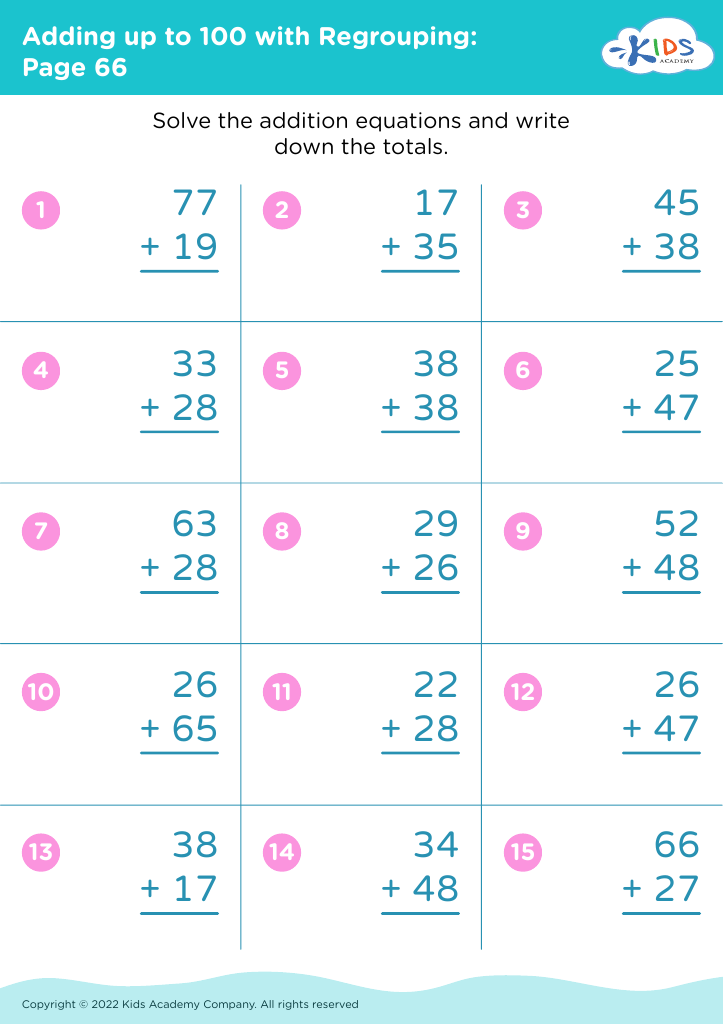Develop inference skills Addition & Subtraction Worksheets for 8-Year-Olds
3 filtered results
-
From - To
Unlock the power of inference with our engaging Addition & Subtraction Worksheets designed specifically for 8-year-olds! These worksheets focus on enhancing critical thinking and reasoning skills through math problem-solving. Students will explore various scenarios, prompting them to interpret information and apply their math knowledge effectively. Each worksheet is crafted to support diverse learning styles while promoting independent thought as students uncover patterns and relationships in numbers. With a mixture of fun visuals and relatable contexts, children will not only master addition and subtraction concepts but also develop essential inference skills that are vital for academic success. Discover the joy of learning today!
Developing inference skills in addition and subtraction for 8-year-olds is essential for several reasons. At this age, children are transitioning from basic arithmetic to more complex problem-solving. By honing their ability to infer, children learn to draw logical conclusions from given mathematical situations, which enhances critical thinking. For instance, when faced with word problems, students must interpret the information provided and determine which operations to apply—skills that extend beyond math into everyday scenarios.
Furthermore, strong inference skills facilitate deeper comprehension of mathematical concepts. Rather than merely memorizing formulas or procedures, children learn to understand the "why" behind the math, fostering a more robust understanding of relationships between numbers. This engagement encourages a lifelong love of learning and a positive attitude toward math.
Additionally, as they refine these skills, children become more proficient in tackling multi-step problems and are equipped to handle real-world situations, preparing them for higher-level math in the future. For parents and teachers, investing time in teaching inference within addition and subtraction not only nurtures academic growth but also supports overall cognitive development, ensuring that children become confident, capable learners.




















